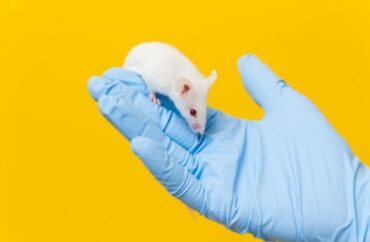
The mice were deprived of ‘essential necessities needed to sustain life’
Seton Hall University should fire its researchers found complicit in animal abuse, according to an advocacy organization.
Stop Animal Exploitation Now filed an administrative complaint with the Catholic university in South Orange, New Jersey. The April complaint demands the termination of the “employment of these animal abusers who are masquerading as researchers.”
A research project ended early with euthanizing animals used in testing because of their mistreatment, a federal report, filed by Seton Hall, found. One primary investigator remains suspended until 2025, after violating research protocol. However, others involved in the abuses have not been fired or punished, the complaint states.
The investigator did not even euthanize the mice as directed, due to the filthy conditions, but instead outsiders were brought in to clean up the mess.
Michael Budkie, executive director of SAEN, told The College Fix on April 25 he has not received a response from Interim President Katia Passerini since the complaint was filed.
On February 24 and May 23 of 2023, “cages housing the animals in the investigator managed rooms were extremely dirty with noticeable excess fecal matter and urine,” the university’s report stated. During both inspections, “the animal bedding was black” and “the water bottles were empty” in all but one or two cages.
“Universities see project termination as a last resort, to be avoided at all costs,” Budkie told The Fix.
“This investigator, and the associated staff, deserve no more chances. They are clearly incapable of performing anything that even roughly resembles scientific research, because they refuse to record data,” SAEN stated in the complaint.
Budkie also wrote:
In the over thirty-five years that I have been working to end animal exploitation in laboratories, I have seldom, if ever, seen a group of lab workers who are more deserving of termination. Denying animals water; allowing bedding to become blacked with feces and urine. Performing unproved procedures and failing to follow approved protocols. Nothing which has been done by these lab workers even roughly resembles science. Their actions have much more to do with animal abuse. They must not be given the opportunity to continue their violations.
The university told The Fix it has addressed the problem.
Seton Hall laid out a corrective plan to prevent similar incidents in the future.
“Our own rigorous reviews and assessments identified these issues, leading us to immediately issue corrective directives to the Principal Investigator (PI) to align with our strict protocols and animal welfare standards,” Director of Media Relations at SHU, Laurie Pine, told The Fix via email.
“Seton Hall University takes the integrity and ethical conduct of research seriously,” Pine also said. “Seton Hall University is committed to ensuring all research conducted under its auspices adheres to the highest ethical standards and complies with all regulatory requirements.”
After the suspension, the investigator may continue his duties with live animals in research. During this time, the university has new protocols to prevent this incident from happening again.
Budkie believes this corrective plan will not prevent animal abuse in the future.
“The Principal Investigator has shown nothing but disdain for both regulations and those university employees charged with supervising the research program,” Budkie told The Fix.
“There is no reason to assume that this new set of protocols will change anything, because the PI’s past behavior ignores things like protocol.”
MORE: NYU law center will address ‘environmental racism’
IMAGE: Mirko Sobotto/Shutterstock
Like The College Fix on Facebook / Follow us on Twitter






Please join the conversation about our stories on Facebook, Twitter, Instagram, Reddit, MeWe, Rumble, Gab, Minds and Gettr.